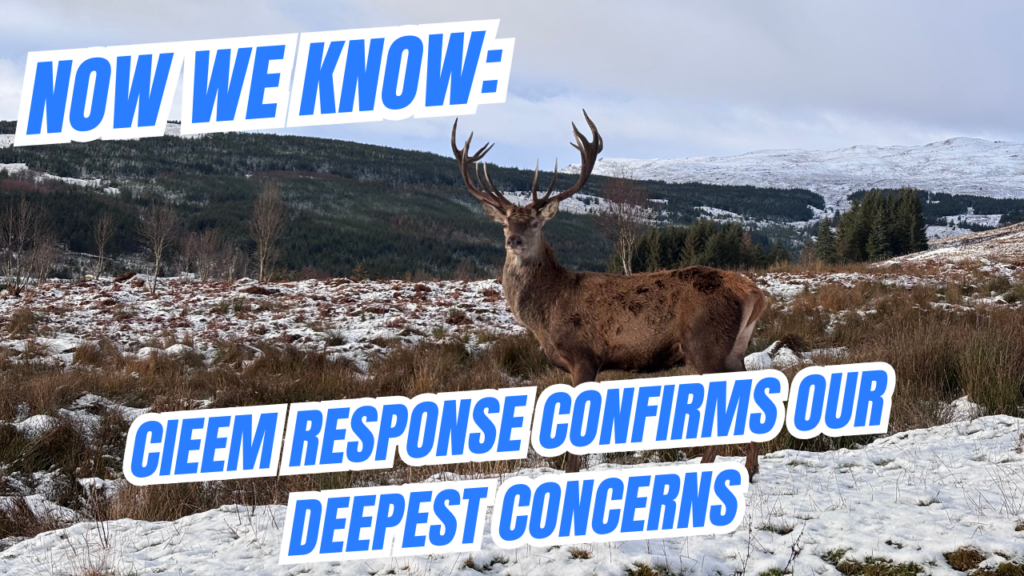
Over the past few weeks, I’ve been sharing thoughts on the Planning and Infrastructure Bill and what it could mean for ecology professionals, developers, and the planning system. We highlighted the emerging risks: environmental delivery plans (EDPs) replacing site-level assessments, financial contributions (the Nature Restoration Levy) allowing developers to bypass species protection, and Natural England moving towards self-regulation.
Now, CIEEM’s official response confirms those concerns — and goes further.
Their verdict?
“The Bill is fundamentally flawed and needs an urgent rethink.”
Here Are The Key Issues Raised by CIEEM — And Why They Matter (to save you straining your eyes on that PDF!)
1. A ‘Pay to Pollute’ System
The Bill allows developers to offset environmental damage by writing a cheque, rather than integrating biodiversity into site design.
- No incentive for onsite enhancements.
- No clarity on how pooled levy funds will deliver meaningful ecological improvements.
- Local nature and community benefits sacrificed in favour of remote mitigation.
2. Loss of the Mitigation Hierarchy
The Bill sidesteps established best practice. The sequence of avoid, mitigate, compensate — the gold standard for development and ecology — is replaced with an approach where money can be paid into a central fund while harm occurs unchecked.
3. Weakened Legal Protections
All tiers of environmental importance — from international sites to local wildlife value — are lumped into one category of “environmental features” with a loose promise of “overall improvement.”
- Ancient woodland, irreplaceable habitats, and protected species are now all at risk.
4. Developers Face More Uncertainty, Not Less
Ironically, this attempt to ‘streamline’ planning creates confusion and additional costs for developers:
- Unclear levy rates.
- No clarity on EDP scope or timelines.
- Double costs: paying both for Environmental Impact Assessments and the levy.
- Small and medium developers are particularly disadvantaged.
5. Natural England’s Role: Conflict of Interest
Natural England becomes regulator, fund holder, implementer, and monitor — all without independent oversight.
- Under-resourced and overstretched, they are now expected to deliver an expanded role that could undermine their effectiveness across the board.
6. The Impact on Our Sector
The Bill devalues professional expertise, dismisses site-specific ecological input, and undermines morale in the ecological sector.
- Fewer opportunities for skilled ecologists to carry out meaningful work.
- Recruitment into the sector could suffer.
- A system based on top-down strategy and financial mechanisms cannot replace boots-on-the-ground expertise and site-level assessments.
Our View: A System Built on False Promises
This Bill asks us to believe that environmental harm can be pooled, offset, and managed centrally with little regard for ecological realities. It ignores irreplaceable habitats, dismisses the power of local site-based ecological input, and places blind faith in self-regulation and remote compensation.
We know that once a species or habitat is lost locally, it’s gone. Planting trees or creating habitat ‘elsewhere’ will not undo damage or rebuild lost ecological networks.
What Should Happen Now?
CIEEM’s recommendations mirror what we’ve been calling for at ROAVR:
- Retain the mitigation hierarchy and ensure it’s part of every EDP.
- Limit ministerial powers to amend EDPs only where it benefits nature.
- Allow developers the choice to deliver on-site mitigation, not just pay into a fund.
- Independent oversight of Natural England’s new role is critical.
- Publish the evidence base and impact assessments — decisions of this scale cannot happen in darkness.
What This Means for Ecologists and Developers Alike
If this Bill progresses unchanged, it threatens to damage public trust, slow development, and undermine the very concept of sustainable planning. Developers lose certainty and risk reputational harm. Ecologists lose influence (and potentially their jobs) and professional standing. Nature loses protection.
My message to colleagues and stakeholders:
We are not against reform. We are not against efficiency (God knows the planning system needs it!).
But we must not replace expertise, integrity, and evidence-based practice with financial shortcuts and political convenience.
This Bill, in its current form, does exactly that.
